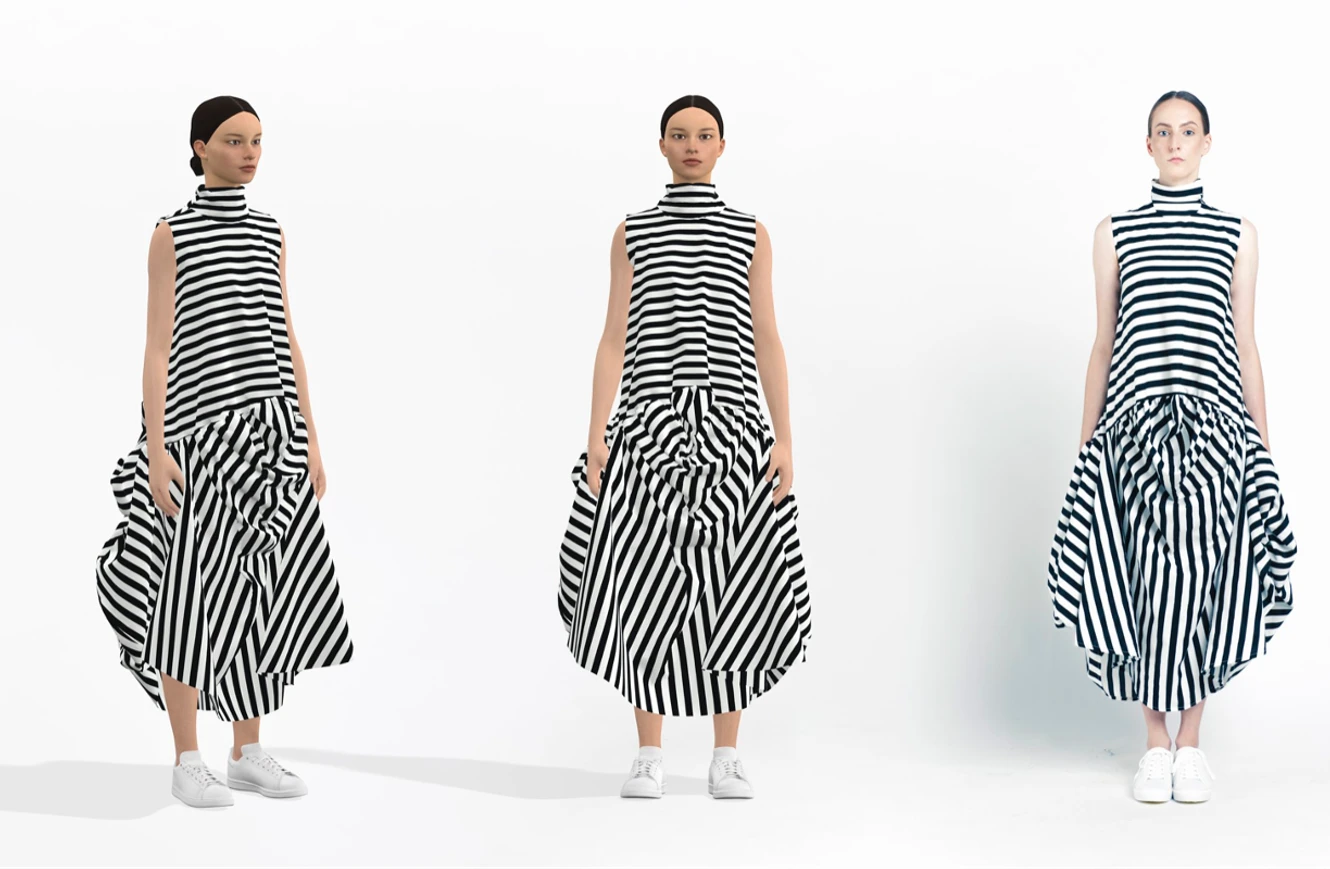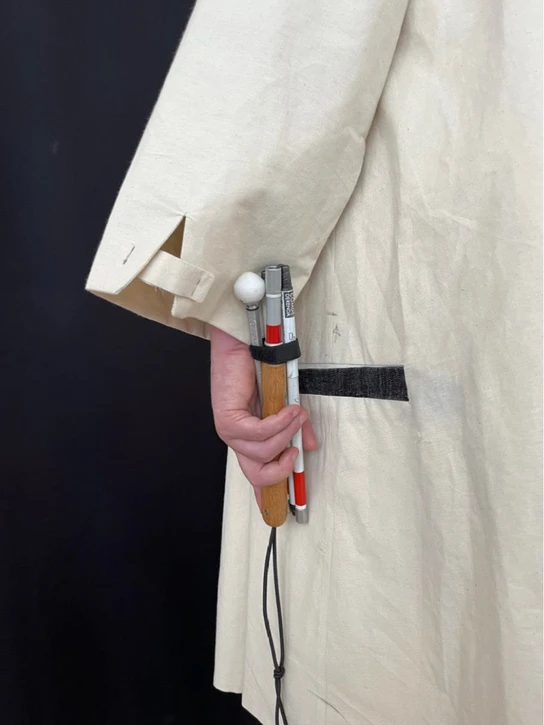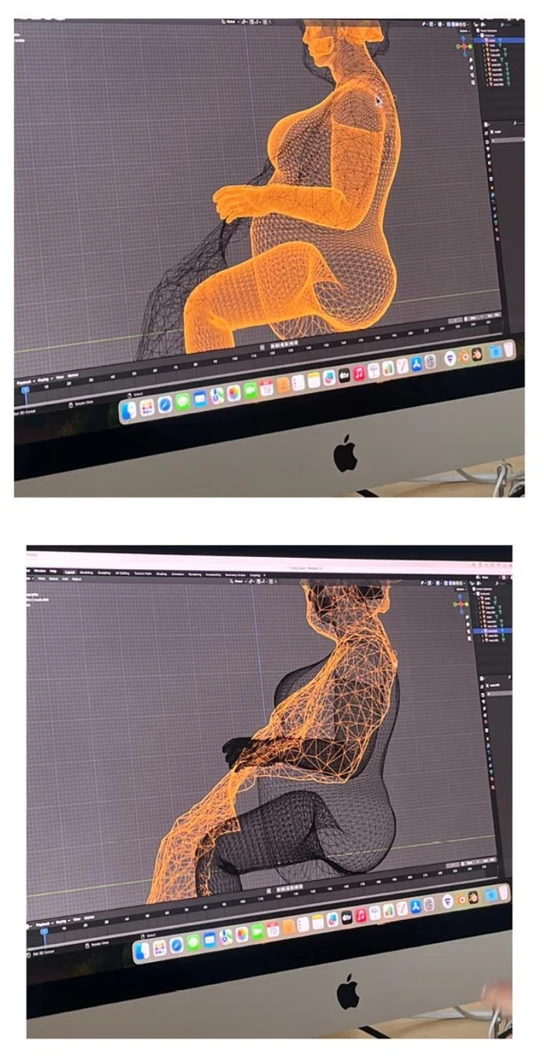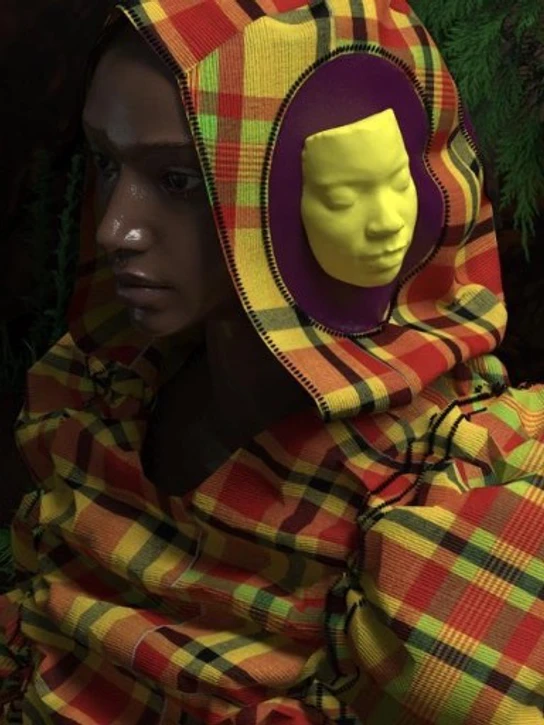
Larisa Gregor, Ema Cestnik, Urban Dereani and Ida Križnič, UL NTF, 2023.
Me You Us: Exploring Digital Tools for a More Sustainable and Inclusive Fashion Education
The Me You Us project brought together three European design schools, the University of Ljubljana, the Willem de Kooning Academy in Rotterdam, and Kolding School of Design in Denmark. Supported by the Erasmus+ programme and partners including CLO3D, G-Star, NTT Data, and Mila.Vert, the project combined academic reflection with hands-on practice to better understand the role of digital tools in shaping the future of fashion.
An Open-Source Library for Learning and Sharing
One of the main outcomes of Me You Us is a freely available open-source library containing nine educational modules. These modules offer introductions on how to implement digital tools such as virtual prototyping, 3D body and environmental scanning, and emerging technologies like AI, AR, VR, and XR.
Each module includes learning materials, examples, and reflections developed and tested in collaboration with students and educators from all three institutions. The library is designed to be flexible, something that others can adapt and build upon in their own teaching contexts.
The aim is not to prescribe a single way of using digital tools, but to share approaches and experiences that can make fashion education more sustainable and inclusive, while strengthening students’ digital literacy.

Mathilde Bang Hansen, Kolding School of Design, 2024.
Learning Through Experimentation
The project was structured in three phases: Me, You, and Us, each focusing on a different aspect of digital design.
- Me explored virtual prototyping, using 3D software to create and test garments digitally. Students found new ways to experiment with silhouettes and materials while reducing physical waste.
- You introduced body and environmental scanning, encouraging students to co-design with real users and to consider the diversity of bodies and contexts for clothing.
- Us brought in AI, AR, VR, and XR, inviting more speculative and interdisciplinary projects that connected technology with social and cultural perspectives and addressed imminent challenges.
Across all stages, the emphasis was on learning by doing, combining technical exploration with critical reflection.
Key Insights
Through the process, several lessons emerged that may be useful for others working with digital tools in design education:
- Gradual introduction helps, building digital skills step by step supports both educators and students.
- Digital tools can promote sustainability, virtual prototyping and scanning reduce waste and open new ways to test ideas before physical production.
- Inclusion benefits from co-creation, involving users with diverse experiences leads to more thoughtful and relevant design outcomes.
- AI use needs reflection, students are curious and quick to explore AI, but they also need guidance to engage with it critically and responsibly.
- Collaboration matters, meaningful change happens when education, industry, and policy work together.

Anna Hald and Sabine Olifent, body scans, Kolding School of Design, 2024.
Looking Ahead
The partners behind Me You Us are convinced that digital tools can be valuable enablers for sustainability, inclusion, and diversity - when applied with care and critical awareness.
They suggest continued collaboration between education, industry, and policymakers to:
- Support educators in developing digital and pedagogical competencies.
- Encourage shared, open resources that lower barriers to innovation.
- Create learning environments where sustainability and diversity are part of every design conversation.
- Develop policies that recognise and fund open, lifelong learning in the digital transition.
A Shared Effort
Me You Us has shown that the integration of digital technologies into fashion education is not only a technical challenge, but also a cultural one. It requires openness, collaboration, and time.
By making its results open and accessible, the project hopes to support others on a similar journey, towards a fashion education that is both digitally forward and deeply human.

Xyantyisairah Burger, exploring Afro-Surinamese heritage, 2025.



